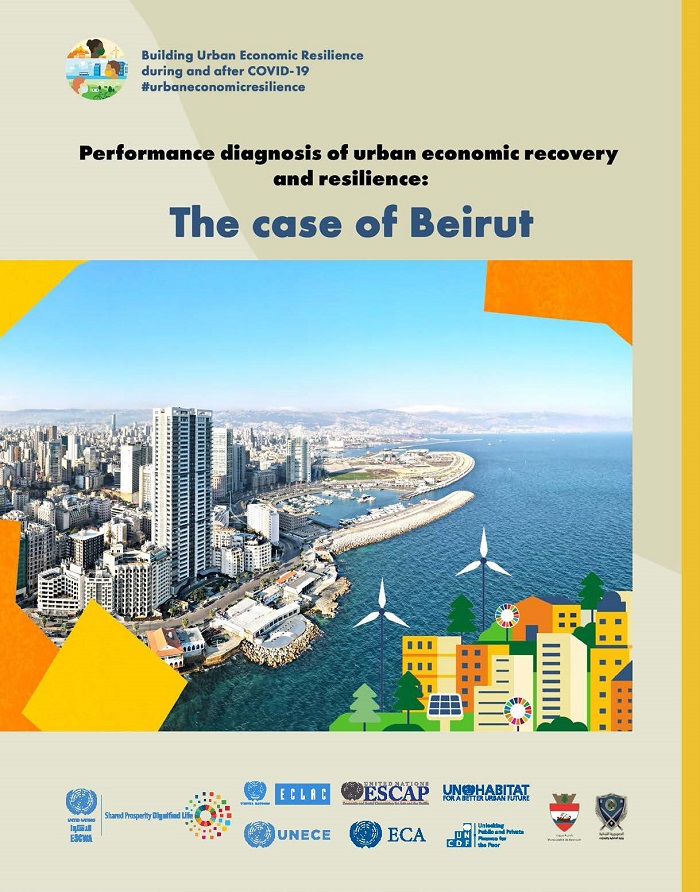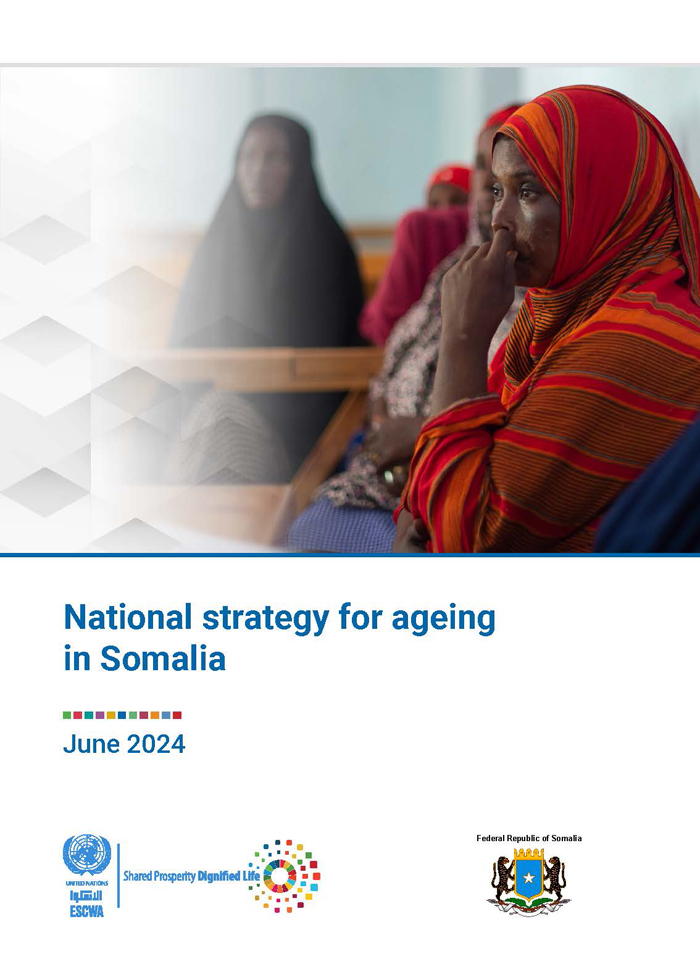
ESCWA Publication: E/ESCWA/CL2.GPID/2022/TP.4
Country: Lebanese Republic
Publication Type: Information material
Cluster: Gender Justice, Population and Inclusive Development
Focus Area: Governance & enabling environment, Resilient development & conflict prevention
Initiatives: Governance and institution building, Sustainable urban development
SDGs: Agenda 2030
Keywords: Economic analysis, Urban areas, Labour market, Covid-19, Financial aspects, Governance, Business, Technical cooperation, Economic analysis, Financial policy, Urban economics
Performance diagnosis of urban economic recovery and resilience: the case of Beirut
November 2022
This report, entitled “Performance diagnosis of urban economic recovery and resilience: The case of Beirut” is a result of the United Nations Development Account “Building Urban Economic Resilience during and after COVID-19” project implemented in 16 cities around the globe. Those cities included three in the Arab region, namely Alexandria, Beirut and Kuwait City. Findings on the resilience performance results of Beirut based on the methodological application of the diagnostic and planning tool (DPT) developed as part of the project are discussed here.
This report analyses the performance of the city of Beirut in the five local resilience areas outlined in the DPT, namely the business environment, labour market, financial system, economic governance and basic service infrastructure and connectivity. This document also aims to inform and guide the development of an economic resilience-building plan for the city. According to the DPT, the assessment of the city of Beirut reveals overall weak resilience performance: the business environment showed moderate to weak resilience; labour market performance was moderate; the financial system was considered moderate to weak and economic governance was also weak. Economic governance was assessed as the main area of weakness in Beirut.
This report proposes solutions that can be used to formulate a practical framework for the creation of more resilient cities post COVID-19. A more resilient Beirut is particularly important, given its role as the capital of Lebanon and the economic, political and financial centre of the country.
Related content
Governance & enabling environment
, Resilient development & conflict prevention
,
This report, entitled “Performance diagnosis of urban economic recovery and resilience: The case of Beirut” is a result of the United Nations Development Account “Building Urban Economic Resilience during and after COVID-19” project implemented in 16 cities around the globe. Those cities included three in the Arab region, namely Alexandria, Beirut and Kuwait City. Findings on the resilience performance results of Beirut based on the methodological application of the diagnostic and planning tool (DPT) developed as part of the project are discussed here.
This report analyses the performance of the city of Beirut in the five local resilience areas outlined in the DPT, namely the business environment, labour market, financial system, economic governance and basic service infrastructure and connectivity. This document also aims to inform and guide the development of an economic resilience-building plan for the city. According to the DPT, the assessment of the city of Beirut reveals overall weak resilience performance: the business environment showed moderate to weak resilience; labour market performance was moderate; the financial system was considered moderate to weak and economic governance was also weak. Economic governance was assessed as the main area of weakness in Beirut.
This report proposes solutions that can be used to formulate a practical framework for the creation of more resilient cities post COVID-19. A more resilient Beirut is particularly important, given its role as the capital of Lebanon and the economic, political and financial centre of the country.



